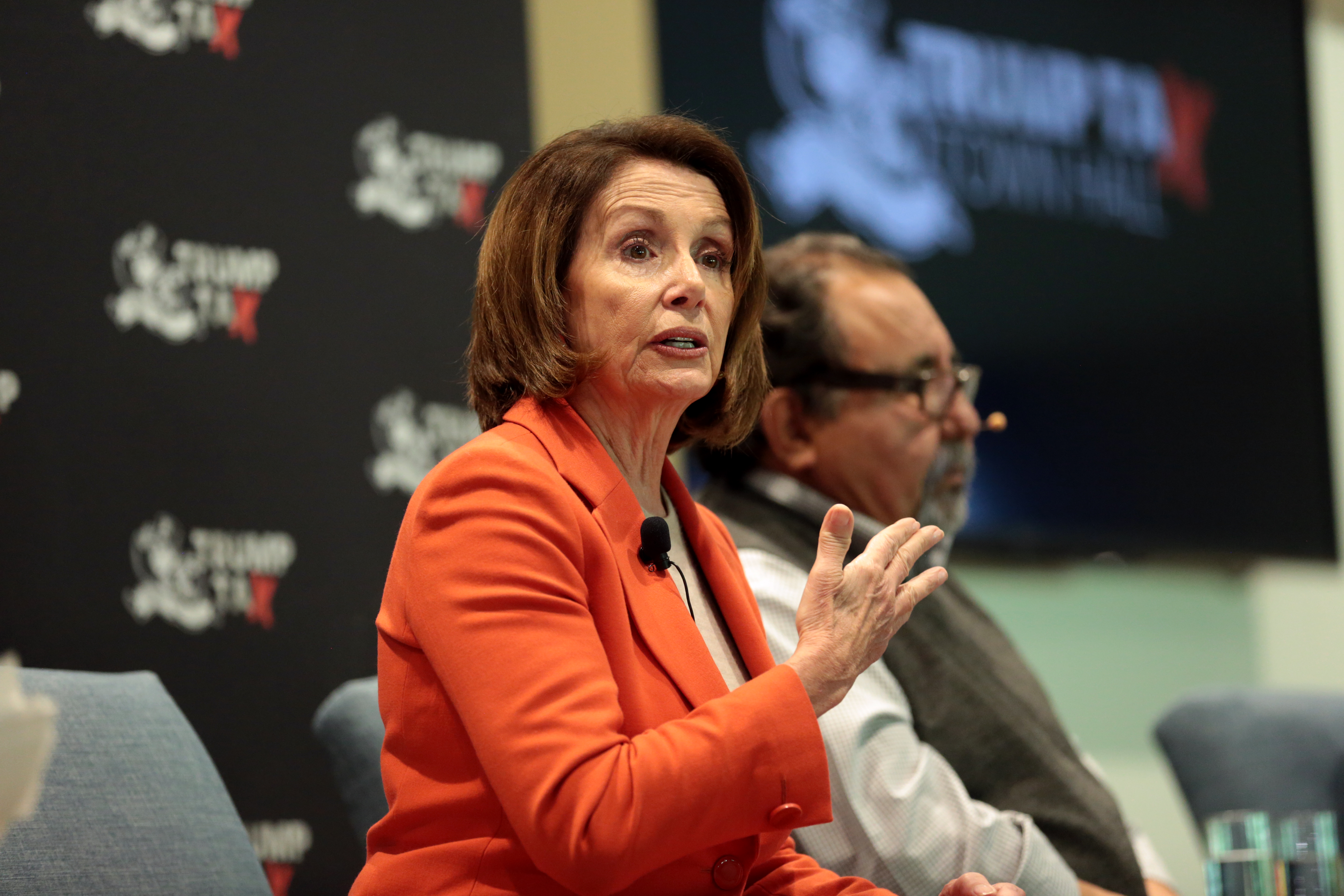Pelosi Elected Speaker; Bill #1 Signals Campaign Finance Reform Effort

The smarter way to stay on top of broadcasting and cable industry. Sign up below
You are now subscribed
Your newsletter sign-up was successful
As expected, Nancy Pelosi (D-Calif.) was re-elected Speaker of the House, and it looks as though campaign finance reform will be one of the issues first up among the new bills House Dems will be introducing pushing.
It was the first time in more than half a century that a speaker has been returned after the House changed hands under their previous watch, according to C-SPAN which was celebrating its 41st year bringing Congress into cable homes nationwide.
Pelosi and House Democrats have scheduled a press conference for Friday (Jan. 4) to unveil H.R. 1, the For the People Act, which whose description--"a historic reform package to restore the promise of our nation’s democracy, end the culture of corruption in Washington, and reduce the role of money in politics to return the power back to the American people" sounds like a Democratic version of "drain the swamp."
The bill was not available at press time, but "reducing the role of money in politics" has been the rallying cry for those trying to take some of the steam out of the Supreme Court's Citizens United decision.
So-called "dark money" TV and radio ads have proliferated since the Supreme Court held that corporations, unions, nonprofits and associations have free speech rights and that government had to tread lightly when trying to restrict expenditures on that political speech because the previous outright ban violated corporations, unions and associations' speech rights.
The court signaled that one of the ways the government could address such protected speech was through heightened disclosure.
Democrats introduced bills to require TV and radio ads to identify the actual funders of ads, rather than the officers of the PACs through which the money was funneled.
The smarter way to stay on top of broadcasting and cable industry. Sign up below
The most recent effort was introduced less than four weeks ago, but with Republicans controlling the House then, that and previous disclosure bills failed to gain traction.
Currently, TV and radio ads only have to identify the individual or organization sponsoring an ad. The bill would require political ads to disclose the top donors to the organization backing the ads. "increasing political spending transparency and stopping politicians from using leadership PACs as slush funds are broadly popular bipartisan reforms.
With Democrats in control, such legislation could well pass the House, though the Republican-controlled Senate remains an obstacle, though perhaps not insurmountable, to campaign finance reform. For example, the late Republican Sen. John McCain (R-Ariz.) was a strong supporter of finance reform.
The Bipartisan Campaign Finance Reform Act of 2002 (McCain was a co-sponsor of the bill) prevented corporations and unions from using treasury funds to pay for broadcast, cable or satellite-delivered "electioneering communications" within 30 days of a federal election. And law going back over 50 years had prohibited those same treasury funds from being used for express advocacy spots that advocated the election or defeat of specific candidates.
But the court majority held in January 2010 that those prohibitions were a ban on speech.
Contributing editor John Eggerton has been an editor and/or writer on media regulation, legislation and policy for over four decades, including covering the FCC, FTC, Congress, the major media trade associations, and the federal courts. In addition to Multichannel News and Broadcasting + Cable, his work has appeared in Radio World, TV Technology, TV Fax, This Week in Consumer Electronics, Variety and the Encyclopedia Britannica.

